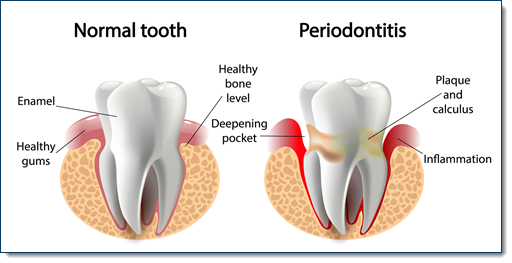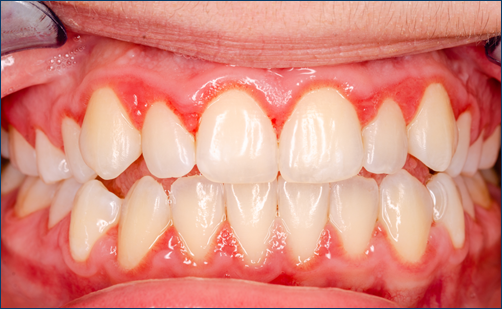Gingivitis and periodontal disease are common but preventable oral health issues that affect the gums. Gingivitis, the early stage of gum disease, can progress to periodontal disease if left untreated, potentially leading to more serious complications, including tooth loss. Good oral hygiene habits are essential in preventing these conditions and maintaining overall dental health.
Understanding Gingivitis and Periodontal Disease
Gingivitis is characterized by red, swollen, and bleeding gums, often caused by plaque buildup along and under the gum line. Plaque contains bacteria that irritate the gum tissue, leading to gingivitis. If not removed, plaque can harden into tartar, exacerbating gum irritation and paving the way for periodontal disease. Periodontal disease involves more significant inflammation and can affect the bone structure supporting the teeth.
Preventing Gingivitis, Periodontitis, and Periodontal Disease
 Regular Brushing and Flossing: Brushing at least twice a day and flossing daily are critical in removing plaque and preventing tartar buildup. Using a fluoride toothpaste and a soft-bristled brush can enhance plaque removal while being gentle on the gums.
Regular Brushing and Flossing: Brushing at least twice a day and flossing daily are critical in removing plaque and preventing tartar buildup. Using a fluoride toothpaste and a soft-bristled brush can enhance plaque removal while being gentle on the gums.- Regular Dental Checkups and Cleanings: Professional cleanings by a dentist or dental hygienist are the only way to remove tartar. Regular checkups can also help in early detection and management of gingivitis.
- Healthy Diet: A balanced diet, low in sugar and high in essential nutrients, can strengthen the immune system and help fight off infections, including gum disease.
- Quit Smoking: Smoking is a significant risk factor for the development of gum disease. Quitting smoking can greatly reduce the risk.
- Use of Therapeutic Mouthwashes: Antimicrobial mouthwashes can reduce plaque and the development of gingivitis. They should be used in conjunction with brushing and flossing.
- Managing Underlying Conditions: Certain conditions like diabetes can increase the risk of gum diseases. Managing these conditions effectively can help in maintaining oral health.
- Responding to Early Symptoms: If signs of gingivitis are noticed, such as bleeding or swollen gums, it is crucial to consult a dentist immediately for appropriate care.
Daily Care, Professional Care, and Lifestyle
Preventing gingivitis and periodontal disease involves a combination of good daily oral care, regular dental visits, and overall healthy lifestyle choices. By adhering to these practices, individuals can significantly reduce their risk of developing gum diseases and maintain a healthy, strong smile. Remember, early intervention is key in preventing the progression of these conditions. Keeping gums clear of tartar and plaque by professional dental scaling and root planing is a key step for prevention.


